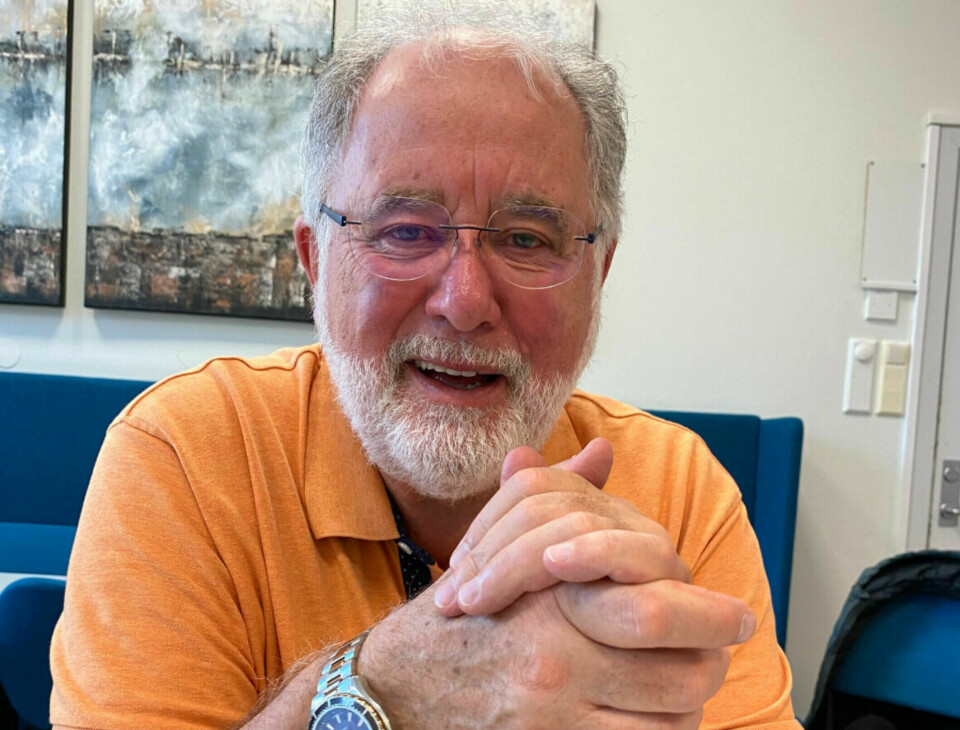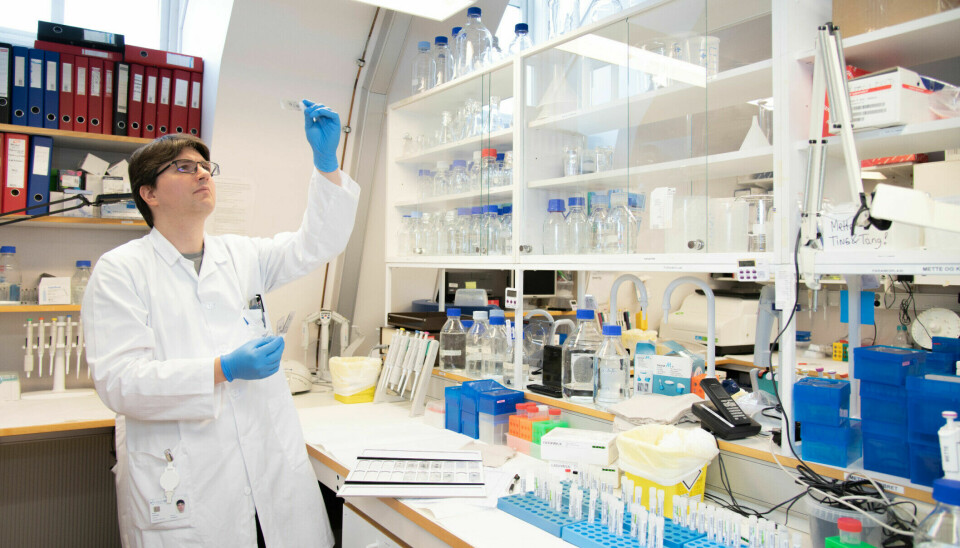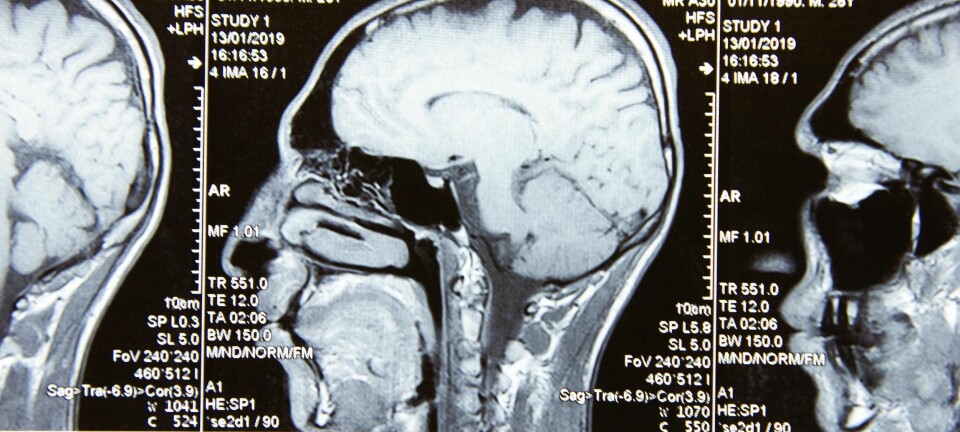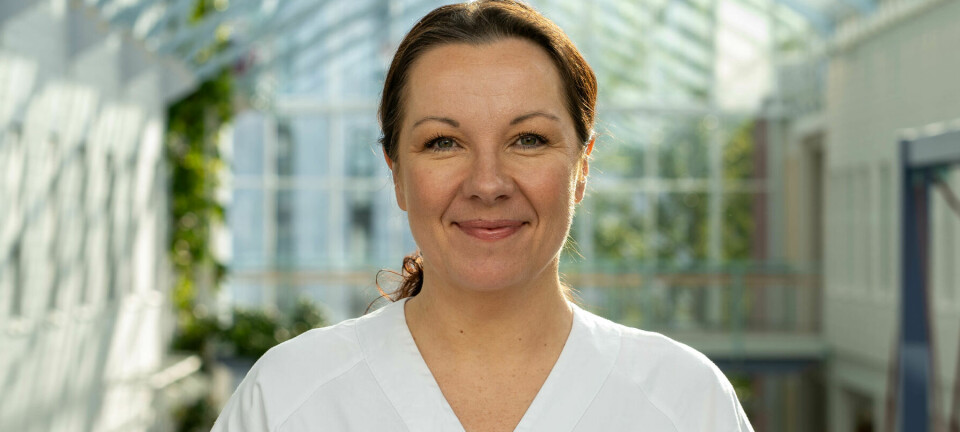
He got one of the fastest-growing brain disorders. A new research approach is looking to slow down the disease's progression
Researchers in Bergen have adopted an entirely new approach in Parkinson's research, which might make them the first to slow the disease’s progression. Frans Olaf Borge is a participant in the study, which is nearing a conclusion.
Borge was diagnosed with Parkinson's disease two years ago.
“It was a shock,” he says.
Soon after, he was invited to join a study at Haukeland University Hospital, where they were testing a new substance that might become a medication for the disease.
He immediately agreed.
Despite decades of research, there are still no treatments that can slow the progression of Parkinson's disease.
Most viewed
“I think it’s very positive that this disease is being researched. It has been a low priority for a long time,” Borge says.
Now, researchers at Haukeland finally hope for a breakthrough, and so does the study participant.
The fastest-growing brain disease
The disease has progressed to the point where Borge has started to tremble and gradually feels an increasing sense of restlessness in his body.
Parkinson's disease is a brain disease that develops over time. It causes tremors, body stiffness, slow movements, and poor balance.
It is the world's fastest-growing brain disease, increasing even faster than Alzheimer's.
The number of cases is expected to double in the next 20-30 years.
Herbicides and insecticides?
Researchers think that while an ageing population is a contributing factor, it doesn't fully explain the overall rise in this condition.
We simply do not know why the disease is increasing so dramatically, Charalampos Tzoulis says.
“One theory is that this could be due to exposure to environmental factors, especially pesticides in herbicides and insecticides,” he says.
Tzoulis is a professor of Neurology and Neurogenetics at the University of Bergen and Haukeland University Hospita
He leads several studies on the disease, including the NOPARK study, in which Frans Olaf Borge participates.
Thinking differently
Tzoulis explains that researchers in Bergen have done something completely new in Parkinson's research.

“Many have researched this worldwide. Most have tried to attack the disease directly, but this has been unsuccessful. We believe it’s because no one really knows what the cause of the disease is,” he says.
Therefore, researchers at Haukeland have chosen a completely different strategy.
“We thought: What if we strengthen the walls against the enemy instead of fighting it directly?”
As the first researchers in the world, they have results suggesting that this strategy, namely improving the energy metabolism and viability of nerve cells, can succeed.
In 2022, they published results that have received significant international attention.
Several Nobel Prizes
The hero of this story is the substance with the complex name nicotinamide adenine dinucleotide (NAD).
“The description of this substance is not new. Several Nobel prizes are associated with it. But research on this has accelerated in recent years,” Tzoulis says.
NAD is found in many places, including various forms of the vitamin B3, he clarifies.
“NAD acts as fuel in our cells. It’s also essential for many vital processes, like repairing damage to our genetic material. As we age, the level of the substance in our nerve cells decreases. Then, the metabolism may fail, and the cells’ damage is not so easily repaired,” he says.
Research suggests that the same happens in Parkinson's disease, ALS, and Alzheimer's.
Some of us get these diseases before we grow old. So, ageing is not the only factor, Tzoulis believes.
Never before shown effect in humans
Previous studies on worms, flies, and mice have shown that NAD can increase lifespan and protect against disease.
Tzoulis and his research group in Bergen have, for the first time worldwide, managed to show that treatment with the NAD precursor nicotinamide riboside leads to an increased amount of NAD in the brains of humans with Parkinson's disease. This improves energy metabolism in the brain.
In the study’s first phase, 30 patients received either NAD or a placebo for 30 days.
The results surprised the researchers.
“Interestingly, this is also followed by a mild symptom improvement,” Tzoulis says.
He believes that by increasing the level of this substance in human cells, they become more resistant to stress and disease in general.
No one has shown this in humans before.
Sold as a dietary supplement
The researchers are now starting a study that will recruit 400 patients who have recently been diagnosed with Parkinson's.
They are eager to see if the treatment will slow nerve cell death and disease progression in a large patient group.
Patients from 12 different hospitals in Norway are participating in the study. 200 of them receive NAD in very high doses. The other half of the participants receive a placebo. The study will be completed in early 2025, and then the researchers will know if NAD can slow down Parkinson's disease.
Our cells can produce NAD from various forms of vitamin B3, which is sold as a dietary supplement in many places today.
However, the doses used by the researchers in their studies are much higher than what is sold over the counter.
No medication to slow down the disease
Currently, there are treatments that alleviate the motor symptoms of Parkinson's disease, such as tremors and stiffness in the body.
There are no good treatments to alleviate other symptoms, such as sleep disturbances or dementia, in the ten million people affected by the disease worldwide.
“We do not yet have a treatment that can slow down the disease. That is our goal,” Tzoulis says.
Can it cause cancer?
There are several reasons why researchers are conducting what is known as a phase-2 study.
In addition to seeing if the treatment is effective, they want to see if it is safe. A study that only lasts a few months cannot determine the safety of taking the supplement over time.
NAD is a substance that, according to animal experiments, can promote life. Maybe it also promotes life for cancerous tumours?
This is among the things that researchers now have to investigate.
Warns against taking the substance preventively
All patients participating in the study will have received the supplement for at least one year. But those who joined the study first may continue taking the supplement for as long as the study lasts.
Several of them will then have taken it for about three years in total, Tzoulis explains.
“This means that we will have very good data on the long-term safety of using the supplement,” he says.
When the study is concluded, the researchers will make a recommendation on whether this should be a treatment that all Parkinson's patients should receive.
He warns against taking the substance preventively before these results are on the table at the beginning of 2025.
“I don't take it myself and don't give it to my elderly mother either,” he says.
No idea who receives the placebo
The study is double-blinded.
This means that the participants do not know whether they receive NAD or a sugar pill. The researchers do not know either.
They use MRI to see if there have been changes in the patients' brains. In addition, they take blood samples and spinal fluid samples from them. None of this data is analysed while the study is active.
Many experience improvement when participating in a study, even those who receive a sugar pill, Tzoulis explains.
“This is because the placebo effect is so strong. Therefore, we researchers don’t know who receives what,” he says.
Can’t write anymore
Frans Olaf Borge takes two tablets at home every morning and evening.
He doesn't think about whether what he is getting is NAD or a placebo.
“The result will reveal that,” he says.
He happens to have a friend who is also in the same study, but they don't compare their symptoms much, he says.
“I notice that the disease is getting worse, year by year. I am slowing down. Now I can hardly write anymore. But here at Haukeland, they say that I still have mild symptoms,” he says.
Many media reports
Lately, there have been several media reports about the ‘miracle pill’ NAD that can counteract ageing and diseases.
Charalampos Tzoulis thinks it is good that the research is getting attention. But it is also a bit unfortunate that patients may get unrealistic hope, he believes.
“I’m a bit surprised that some researchers, especially those working in basic research, speak so categorically about the potential for NAD. We clinicians are more cautious, as we know there is a long way from the laboratory to the clinic,” he says.
It is too early to draw conclusions
It is too early to say whether they have the answer to what it takes to slow down Parkinson's and other so-called neurodegenerative diseases, the researcher believes.
“We’ve seen promising findings in our small clinical studies. This makes us optimistic. So optimistic that we’re spending more than NOK 100 million (9 million USD) of taxpayers' money to conduct a large study on the substance,” he says.
But throughout history, there has not been a single case in research on neurodegenerative diseases where a promising finding in cells or animals has been transferable to humans, he points out.
“We must therefore be very cautious when talking about promising treatments in this field. 50 years of many good attempts at treatment studies have failed. We must not give patients false hope. It's crucial that we remain patient now,” he says.
What happens if they succeed?
The researchers are working on an innovation project that runs parallel to the research project.
“If the answer is positive, we want this substance to reach patients as soon as possible,” Tzoulis says.
The researchers in Bergen are already in contact with the Norwegian, European, and American drug regulatory agencies about a possible approval of NAD for use on Parkinson's disease as a medicine.
“If this is effective in the sky-high doses that we use, then it can no longer be used as a dietary supplement,” he says.
If it becomes medication, a company must take over and market it and make it available, he explains.
“There will be generations after me”
Study participant Frans Olaf Borge says he does not think much about the result of this research.
“I am aware that researchers need to try and fail. I'm just happy to be able to contribute to their knowledge,” he says.
Even though he might not benefit from a potential medicine, he wants to do his part to ensure that others may benefit from the research.
“There will be generations after me. If I can help them, that's great,” Borge says.
———
Translated by Alette Bjordal Gjellesvik
Read the Norwegian version of this article on forskning.no
RELATED CONTENT







































